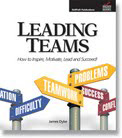I had a recent conversation with an individual who was lamenting the challenges of dealing with his sometimes volatile “significant other.” It sounded to me like a problem that is not uncommon in close relationships. “I just don’t know what to say to her sometimes,” He confessed, “Whatever I end up saying just seems to make the situation worse.”
Is this just a “guy thing?”
I’m not sure—I can only be certain of my own experience and perspective, and I confess: I’m a guy, so my perspective is what it is!
But it’s certainly a “communication thing” and that is something I have studied and grappled with my whole life! As I have learned and tested better communication in my own situations, I have endeavored to share those insights and skills in my training seminars and coaching sessions.
So I offer the following four phrases as helpful tools that support more positive relationships, particularly with that special person with whom you share your life and goods:
Phrase #1: What can I do to help?
It can be difficult to know how to respond to a person who seems to be upset with YOUR lack of involvement, help, or support. That’s when this phrase becomes so helpful.
First of all, it immediately ends any perception on the other person’s part that you are intentionally ignoring their need or ducking your responsibility or (selfishly) avoiding any involvement!
Second, it quickly shifts the focus of the discussion to identifying practical steps to move forward toward a positive resolution of the need.
Third, it forces the other person to make the next move in the conversation, and respond positively, and productively!
Fourth, it can result in giving the questioner a clear, concrete, productive assignment—something practical they can do, to make the situation better and demonstrate their willingness to help!
But…what happens if the complainer is just venting about a difficult situation, and not really expecting the listener to solve their problem??? That’s when the next phrase comes handy:
Phrase #2: I’m sure you’ll figure it out.
The clue that identifies the need for this response is when the complainer responds to the FIRST question with something akin to: “I don’t know” or “I don’t think anyone can really help me at this point.”
Another clue is when the complainer rebuts any ideas with a phrase that begins with “Yes, but…” That’s usually a sign that the complainer isn’t really looking for your help or expecting you to rescue them with a solution.
That’s when this phrase is helpful—in two regards:
First, it creates a focus on the other person’s “internal locus of control.” This is a strongly positive psychological perspective. It sends the message to the complainer: YOU ARE NOT HELPLESS. YOU ARE NOT AT THE MERCY OF EXTERNAL FORCES. YOU CAN DO SOMETHING TO CHANGE THE SITUATION.
By the way, this is one of the most important things I do as an executive coach!
My goal in each session is to help the client identify whatever actions they can take, to make their situation better. This eliminates any view or feeling on their part that they are helpless victims of circumstance and powerless to make any move or take action.
Second, the words, “I’m sure…” send the message, “I believe in your ability to succeed!” Psychologists tell us that external perspectives can be powerful influencers on our own self-image and self-assessment. That’s why the opinions about us that we receive from coaches, mentors, teachers, (and other people we respect) are so inspiring and motivating for us! Those “other people” enable us to believe what THEY believe…about us!
Up Close and Personal
When I was contemplating the shift from organizational life to self-employment, I had the good fortune to participate in a unique executive training program. I found myself rubbing shoulders with a number of successful entrepreneurs, consultants, and company founders. Some of these individuals became true friends who encouraged me to start my own consulting practice. They told me, in no uncertain terms: “You can do this! You should do this! You have the ability to help people in a substantial way!” Their encouragement was paramount to my leap of faith and was the “external perspective” that proved—to me—that my ambitions were neither blind nor unrealistic.
PHRASE #3: I’m sorry, I misunderstood.
I am convinced: Clear communication is one of the biggest challenges we face as human beings! Sociologists agree. The barriers of individual “filters” and differing points of view are the main contributors. Those difficulties will never change for us as humans. They are “hard-wired” into our modes of perception and thought. My conclusion:
Confusion and misunderstandings are inevitable in life and in relationships!
What’s a person to do?
Be prepared to make mistakes and respond accordingly.
Thus—the value of this simple phrase. When misunderstanding occurs, this simple apology and explanation reorients the conversation immediately in a more productive direction.
REASON #1: The phrase, “I’m sorry” is a simple apologetic. It is a humble expression of regret that sends a message of concern and support to the other person. It also reinforces the underlying meaning of the next phrase.
REASON #2: The phrase, “I misunderstood” clearly identifies the speaker as taking responsibility for the error, rather than trying to shift blame or point the finger at some other person or agent. Trust me in this: People respect others who are willing to accept responsibility, rather than avoiding blame.
REASON #3: The use of the word “misunderstood” also positions the problem as unintentional in nature. That puts the resulting conversation on “neutral” grounds, defusing the strong emotions that often accompany attempts to blame or vilify. That allows for much more productive correction and collaborative problem-solving. Now for the final phrase:
PHRASE #4: I guess if I were in your situation, I would probably feel the same way.
This is a clear, straightforward expression of emotional validation.
Emotional validation is powerful, because it sends a two-fold message:
ONE: I understand why you feel the way you do.
TWO: The way you feel is understandable—it’s not unique, unusual, or irrational.
Emotional validation is the ability to communicate cognitive empathy. Cognitive empathy is the most basic form of the three types of empathy. Cognitive empathy means having a mental understanding of another person’s experience. It means you understand another person’s point of view. Emotional intelligence expert, Daniel Goleman, describes it as:
“Simply knowing how the other person feels and what they might be thinking. Sometimes called perspective-taking.”
Some people struggle with the concept of empathy, because they resist the other two types of empathy, which require more than just an intellectual understanding.
For example, the second type of empathy— emotional empathy—occurs when you actually feel what the other person is feeling. Goleman puts it this way:
“…when you feel physically along with the other person, as though their emotions were contagious.”
In some situations, we might not actually feel the way the other person is feeling, even though we understand why they might feel that way. That can happen when the other person is experiencing intense emotions of grief, anger, or depression.
The third type of empathy is compassionate empathy. This type can also be a bit of a challenge to experience. Compassionate empathy is the ability to respond with care and action. Goleman describes it this way:
“With this kind of empathy, we not only understand a person’s predicament and feel with them but are spontaneously moved to help, if needed.”
The challenge is that we may not know how to help! [See Phrase #1 above.]
This predicament is not uncommon—when we are faced with another person’s care or concern and unable to offer any practical help, to address the situation or resolve the difficulty. I think of problems in the workplace, for example. When a spouse vents about a difficulty at work. Is it really realistic that they are expecting their partner to fix the problem? I don’t think so. But their partner can reasonably express understanding and empathy using the phrase I suggest. That can go a long way towards easing the pain of the other.
This phrase has real value, because it is an antidote to one our culture’s worst communication bad habits, and that is to stigmatize true emotion and invalidate it. Here’s the most common offending phrase that is used:
Oh, you shouldn’t feel that way!
OUCH. That sends the opposite, counter-productive message to the individual. It tells them that their feelings are irrational and don’t make any sense…that there is something wrong with the person, emotionally. I don’t think most people are thinking that when they use this phrase. I think most people who respond this way are thinking that it will help the other person! But in their ignorance, they just make matters worse.
It is much more positive, supportive, and helpful to say:
I guess if I were in your situation, I would probably feel the same way.
You don’t have to actually feel the same way or feel responsible to take action in response. You just have to understand.
It’s so simple…but so powerful.
So…the next time you are having a rather energetic conversation with that important other person in your life, and you are tempted to say something like, “Oh baby…you shouldn’t be mad about this!” Open up this blog post. Read Phrase #4. Then repeat it to that other special person. I guarantee the conversation will proceed on a much more positive note!
By the way…
If all of this advice sounds a little like the kind of ideas you might receive in a customer service training seminar…you’re not too far off the mark. I’ll accept that reference, since customer service training content is something I have created and delivered for a number of my clients. But should it surprise us that good communication skills and tools can have a very broad application in human relationships?
If you want to be a better communicator and a better leader—you can! Take advantage of the straightforward advice in this article, and stay tuned for more great insight and direction RIGHT HERE.
Until next time… Yours for better leaders and better organizations,
Dr. Jim Dyke – “The Boss Doctor” ™ – helping you to BE a better boss and to HAVE a better boss!






